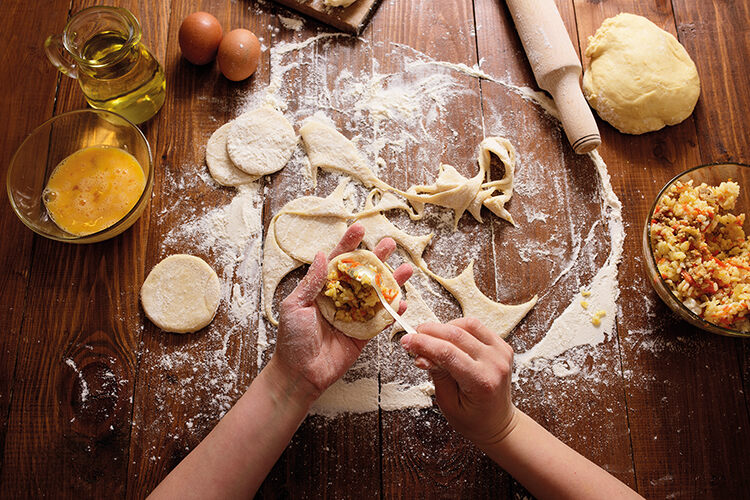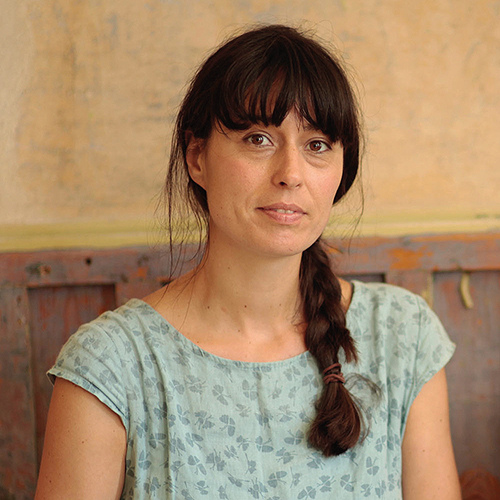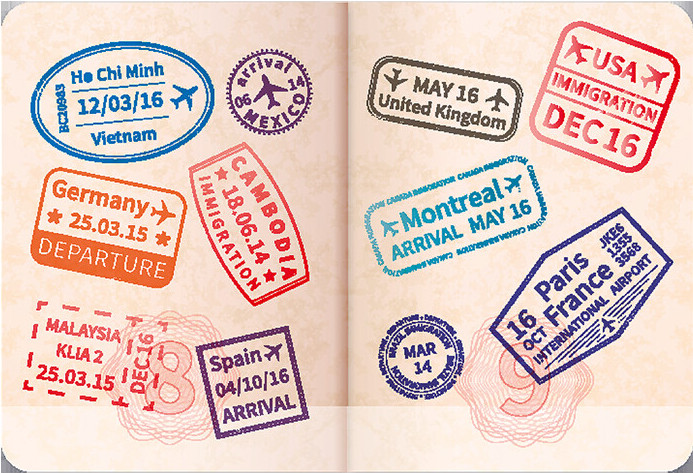Passport

Food writer Zuza Zak, who travels widely to research her books, talks to Bryony Cottam

Zuza’s travel insights
• Food can reveal shifting borders and patterns of migration
• Eating local food is as important as sightseeing
• Continue to immerse yourself in different cultures by exploring foreign cuisines when at home

I think pierogi would be a good place to start,’ says Zuza Zak when asked what dish she would recommend to someone who is new to cooking Polish cuisine. ‘Of course, I would say that – my last cookbook is called Pierogi,’ she continues with a laugh.
Zak is travelling through Poland as we speak. She regularly returns to the country in which she was born and lived for the first eight years of her life, a period that has heavily influenced her career as a cookery writer and author of three cookbooks on Eastern European cuisine. ‘Food has always been a really big part of my life,’ she says. ‘Both my parents were working full time. I spent a lot of my childhood with my grandmas, and they spent a lot of their time in the kitchen.’
When her family moved to England, food became a way to remain connected to life in Poland. ‘It took on a new dimension,’ she says. ‘I think for a lot of people in the diaspora, food becomes an important connection to home.’ Despite this, she didn’t anticipate growing up to be a cookery writer. ‘I was working in TV and, at some point, I started just writing a cookbook in any spare time I had.’
Polska was a labour of love that Zak filled with family recipes. ‘When I first moved to England, I was met with a lot of disdain for Polish cuisine. I felt there was a real disconnect with what I knew Polish food to be, and what other people saw it as.’ Communism, she says, is largely to blame. Growing up, there was often little to be found in the shops and a restaurant culture has only recently started to develop. Yet families would pull together to find everything needed to make the perfect feast. ‘Plus, I think there’s always been a kind of hospitality culture where you invited people into your home – that was the way that people entertained and cooked.’
Zak refers to herself as a ‘storyteller-cook’, using her writing as a medium to delve into another cuisine and, through it, into another culture. She likes to challenge the preconceptions that people have towards certain aspects of Eastern European life, and encourages any traveller to question their own assumptions about a place. ‘Try to see beyond the surface level,’ she says, adding that food can reveal much more than just a country’s favourite dish. ‘A lot of Poland’s regional cuisine has been influenced by shifting borders and the migration of a lot of people. For example, in Olsztyn, where my dad was born, the food has a mixture of Russian, Ukrainian and Lithuanian origins.’
Zak, who has two young children, admits that when travelling as a family, looking for places to eat can be a little bit of a challenge. But food can also be a particularly good way to introduce children to a new culture, she says. ‘When you’re travelling with kids, you really have to take it easy and not overexert yourself. That can be a recipe for disaster. Trying new foods can be a really good way to discover a new place without all the running around sightseeing. It offers new experiences at a slow pace.’
Alternatively, she says, pick up a cookbook, an often-overlooked but fun way to learn more about a destination. ‘Sometimes people travel and they think they know everything by the time they come back. But actually, by trying to recreate some of those recipes you tried abroad, you can continue to learn and immerse yourself in a culture long after your holiday has ended.’
Zuza Zak’s new book, Slavic Kitchen Alchemy, will be published this month. Pre-order it below.




